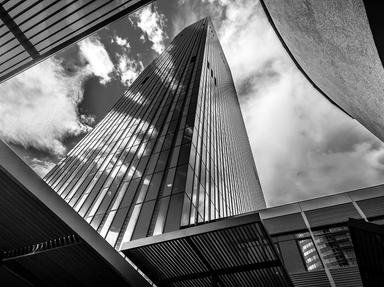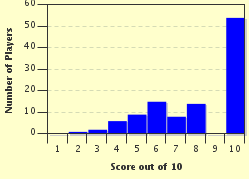
Shot Through the Heart Trivia Quiz
This quiz asks you to match the country to its political leader. Each of these leaders shares a common fate. They were all killed, although not necessarily by being shot through the heart. Not for the squeamish perhaps.
A matching quiz
by suomy.
Estimated time: 3 mins.
- Home
- »
- Quizzes
- »
- World Trivia
- »
- Government
- »
- World Leaders
